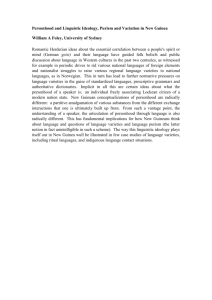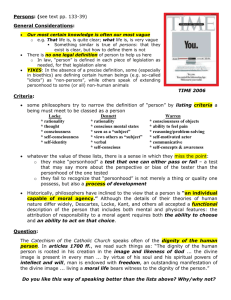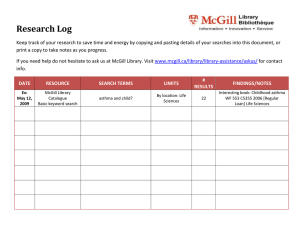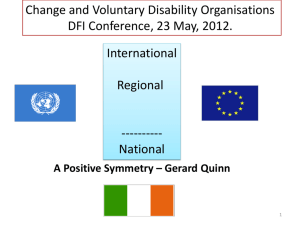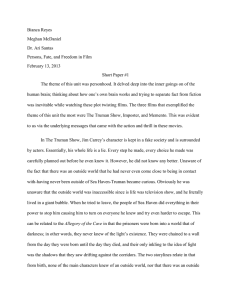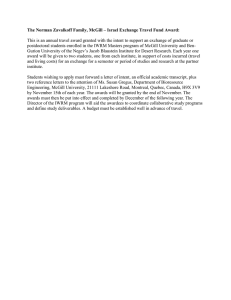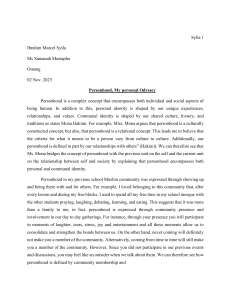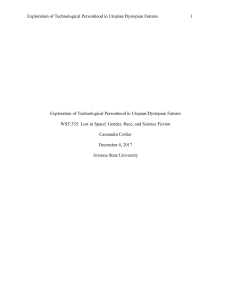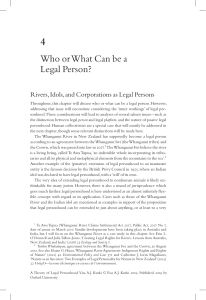PERSONHOOD, PRACTICE, and TRANSFORMATION: Classical and Contemporary Perspectives McGill University, Montreal, Quebec
advertisement
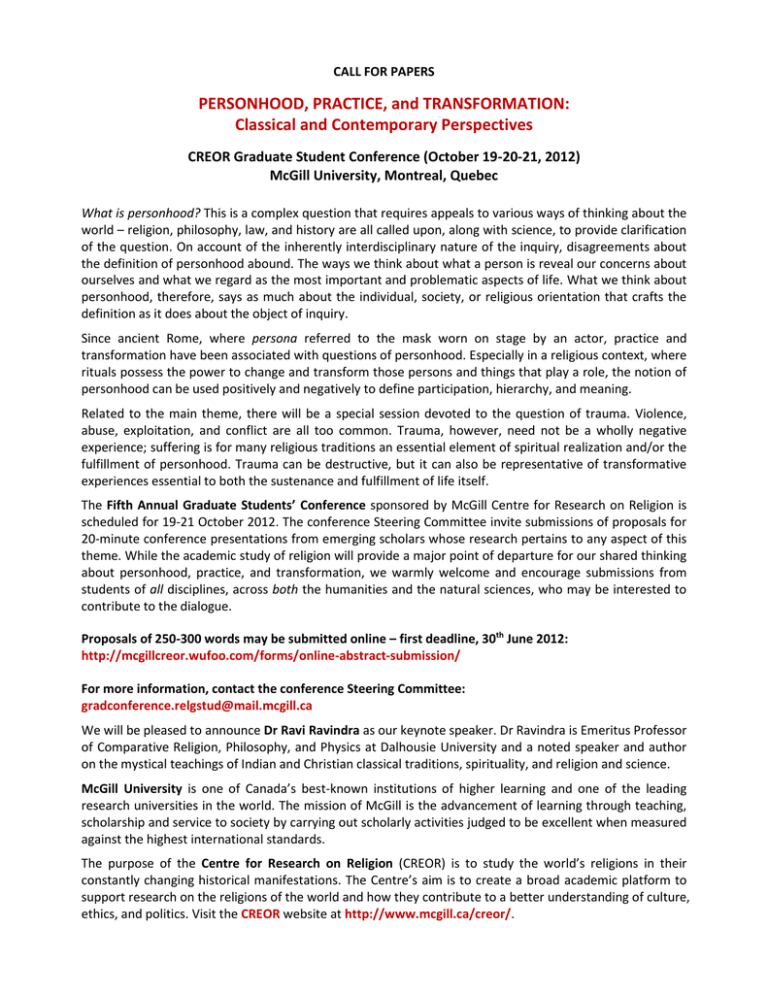
CALL FOR PAPERS PERSONHOOD, PRACTICE, and TRANSFORMATION: Classical and Contemporary Perspectives CREOR Graduate Student Conference (October 19-20-21, 2012) McGill University, Montreal, Quebec What is personhood? This is a complex question that requires appeals to various ways of thinking about the world – religion, philosophy, law, and history are all called upon, along with science, to provide clarification of the question. On account of the inherently interdisciplinary nature of the inquiry, disagreements about the definition of personhood abound. The ways we think about what a person is reveal our concerns about ourselves and what we regard as the most important and problematic aspects of life. What we think about personhood, therefore, says as much about the individual, society, or religious orientation that crafts the definition as it does about the object of inquiry. Since ancient Rome, where persona referred to the mask worn on stage by an actor, practice and transformation have been associated with questions of personhood. Especially in a religious context, where rituals possess the power to change and transform those persons and things that play a role, the notion of personhood can be used positively and negatively to define participation, hierarchy, and meaning. Related to the main theme, there will be a special session devoted to the question of trauma. Violence, abuse, exploitation, and conflict are all too common. Trauma, however, need not be a wholly negative experience; suffering is for many religious traditions an essential element of spiritual realization and/or the fulfillment of personhood. Trauma can be destructive, but it can also be representative of transformative experiences essential to both the sustenance and fulfillment of life itself. The Fifth Annual Graduate Students’ Conference sponsored by McGill Centre for Research on Religion is scheduled for 19-21 October 2012. The conference Steering Committee invite submissions of proposals for 20-minute conference presentations from emerging scholars whose research pertains to any aspect of this theme. While the academic study of religion will provide a major point of departure for our shared thinking about personhood, practice, and transformation, we warmly welcome and encourage submissions from students of all disciplines, across both the humanities and the natural sciences, who may be interested to contribute to the dialogue. Proposals of 250-300 words may be submitted online – first deadline, 30th June 2012: http://mcgillcreor.wufoo.com/forms/online-abstract-submission/ For more information, contact the conference Steering Committee: gradconference.relgstud@mail.mcgill.ca We will be pleased to announce Dr Ravi Ravindra as our keynote speaker. Dr Ravindra is Emeritus Professor of Comparative Religion, Philosophy, and Physics at Dalhousie University and a noted speaker and author on the mystical teachings of Indian and Christian classical traditions, spirituality, and religion and science. McGill University is one of Canada’s best-known institutions of higher learning and one of the leading research universities in the world. The mission of McGill is the advancement of learning through teaching, scholarship and service to society by carrying out scholarly activities judged to be excellent when measured against the highest international standards. The purpose of the Centre for Research on Religion (CREOR) is to study the world’s religions in their constantly changing historical manifestations. The Centre’s aim is to create a broad academic platform to support research on the religions of the world and how they contribute to a better understanding of culture, ethics, and politics. Visit the CREOR website at http://www.mcgill.ca/creor/.
